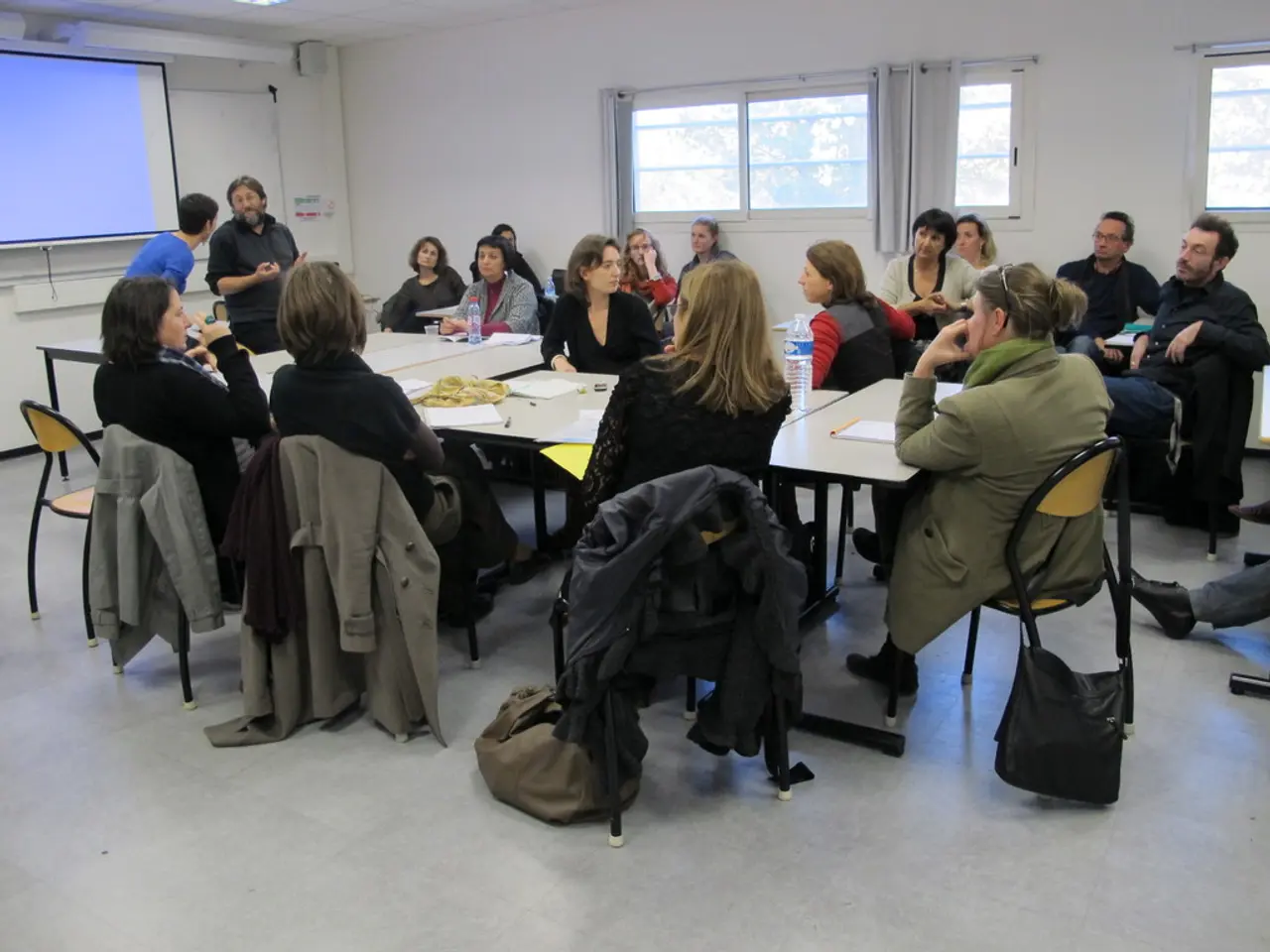European leaders, including Zelensky, issue caution to Trump about independent actions
In the lead-up to the scheduled meeting between US President Donald Trump and Russian leader Vladimir Putin in Alaska, a series of discussions have taken place involving high-ranking government representatives and security advisors from the US, Ukraine, and several European countries. These talks, described as "constructive" by Ukrainian President Volodymyr Zelensky, have emphasised a firm rejection of any territorial concessions to Russia and the recognition of occupied Ukrainian territories as Russian.
At the heart of these negotiations is Ukraine's steadfast position that territorial concessions to Russia are off the table, and the explicit rejection of recognising occupied territories as part of Russia. This stance is supported by the US and European partners, who have underscored their continued commitment to Ukraine's sovereignty and territorial integrity.
A complete ceasefire is considered a prerequisite before addressing long-term peace or territorial issues. European diplomats believe Putin may agree to a ceasefire that freezes current frontlines, including in the southern Ukrainian regions of Kherson and Zaporizhzhia. However, any such agreement would only serve as the starting point for negotiations.
The Ukrainian army would have to cede thousands of square kilometers and strategically important cities if Putin's demands are met. This prospect has raised concerns about severe internal political turmoil in Ukraine and the need for a constitutional amendment.
Ukraine demands robust and credible security guarantees as essential to defend its sovereignty effectively. The details of these guarantees, as well as the Kremlin's concessions in return, are not yet clear.
Meanwhile, Moscow claims vast parts of eastern and southern Ukraine and demands that Kiev abandon its aspirations to join NATO. The European allies have left open the question of a future NATO membership for Ukraine and the issue of whether the US should be part of future security guarantees.
Trump has proposed a "territorial exchange" between Ukraine and Russia, but the details of this proposal are also unspecified. The current frontline can only be "the starting point for negotiations," according to the Europeans.
The Ukrainian leadership and their European allies have emphasised the limits of their willingness to compromise, stating that international borders should not be changed by force. This unity among Ukraine, Europe, and the US has made territorial concessions and demilitarization demands by Russia unacceptable.
As the meeting between Trump and Putin approaches, the focus remains on upholding Ukraine's sovereignty, territorial integrity, and constitutional order without rewarding Russian aggression. The outcome of these negotiations will have significant implications for the future of Ukraine and the broader region.
[1] The Washington Post [2] BBC News [3] The Guardian [4] Reuters [5] The New York Times
- The ongoing discussions regarding war-and-conflicts between the US, Ukraine, and several European countries, as reported by various news outlets like The Washington Post, BBC News, The Guardian, Reuters, and The New York Times, focus on upholding Ukraine's sovereignty, territorial integrity, and constitutional order without rewarding Russian aggression.
- These talks, which involve policy-and-legislation and general-news, revolve around Ukraine's demand for robust and credible security guarantees as essential to defend its sovereignty effectively, with the details of these guarantees and the Kremlin's concessions in return yet to be clear.




